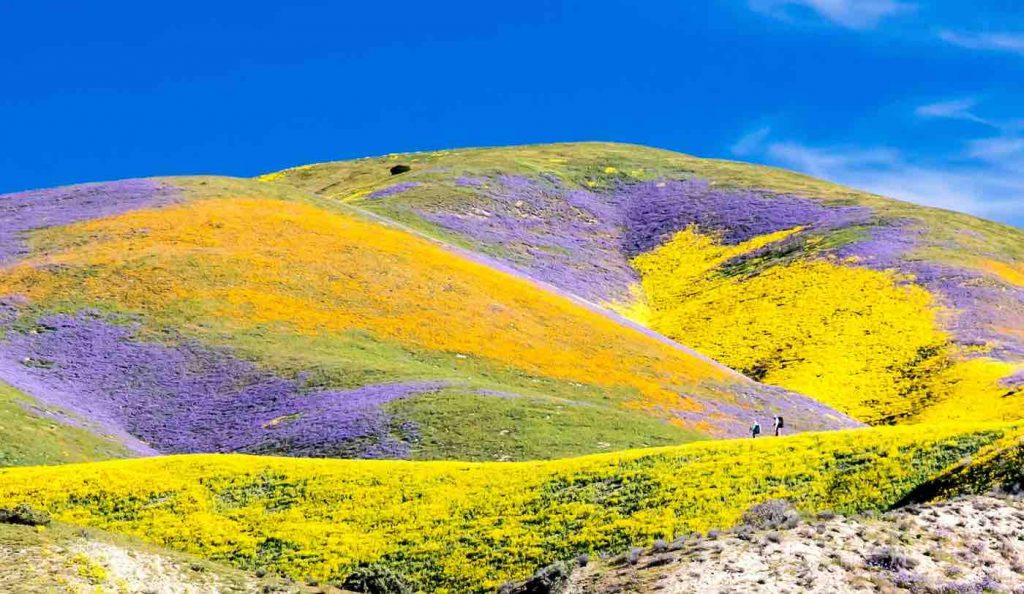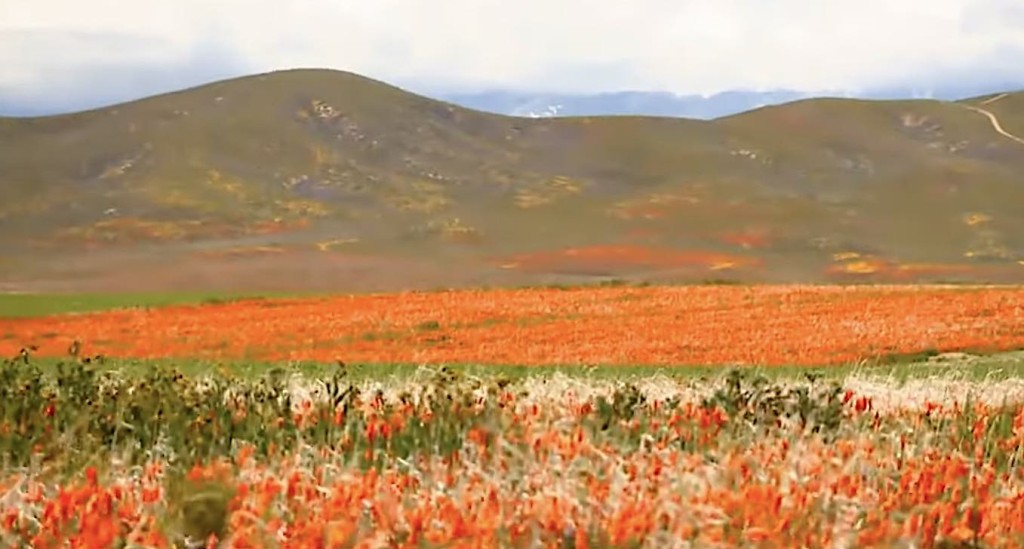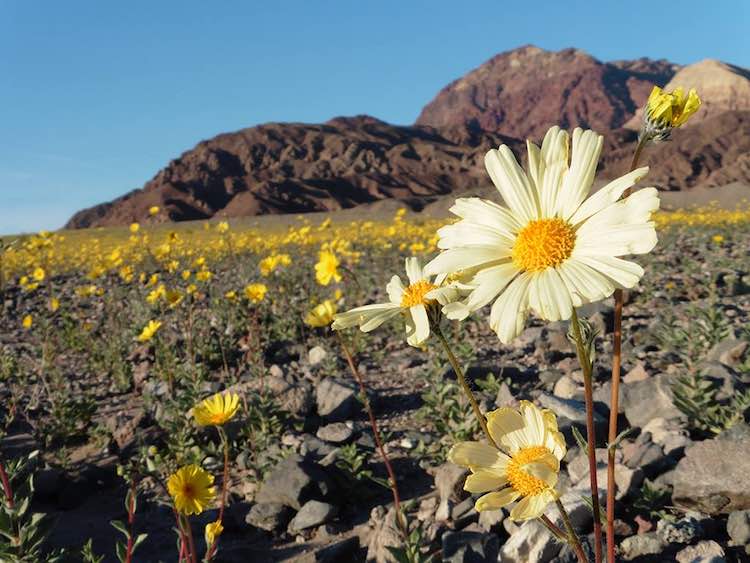

Drenching rains and record snowfall throughout California’s 2022-2023 winter season carried on throughout the year, and by September, normally the peak of the dry and fire seasons, no part of the state was considered to be suffering from drought conditions.
Experienced Californians will have had a hunch that all that water meant this year’s spring may hold a surprise—a superbloom.
This non-scientific term simply refers to spring wildflower blooms of inordinate proportions after wet winters. California has recently experienced some incredible blooming events that were seen from space.
Last year’s was breathtaking; one of the most dramatic ever seen according to experts. This year promises to be something similar, but we won’t know for certain until April, when peak blooming tends to occur as flowers open in the higher-elevation deserts.
“It’s definitely looking like it’s going to be a good season,” said Evan Meyer, a botanist and the Executive Director of the nonprofit Theodore Payne Foundation. “Last year was incredible, it was one of the best blooms in many years.”
ALSO CHECK OUT: The Smell of Desert Rain May Be Good for Your Health
Wildflower blooms in California’s Anza-Borrego Desert State Park, about 50 miles south of Palm Springs, are already up in color according to CNN, as well as in Chino Hills State Park, outside of Anaheim, and Tule Elk State Natural Reserve, south of Santa Barbara.


It depends on what the weather decides to do, but if a Goldilocks ratio of moisture and heat continues as it has so far, many more areas are liable to explode in color.
Flower species include desert sand verbena, sage, dune evening primrose, and California poppies.
MORE NATURAL PHENOMENA TO INSPIRE: Cicadas Are Coming: Rare ‘Dual Emergence’ Could Awaken a Trillion Bugs of 2 Species – First Time in 221 yrs
The poppies in particular are very sensitive to changing temperatures, and in Antelope Valley California Poppy Reserve, it’s unclear whether this native flower will explode as it did last year because of a late showering of rain.
Superblooms are on across desert states like Nevada and Arizona, and even Death Valley National Park can experience these giant blooms.
SHARE This News With Californians In Your Life…